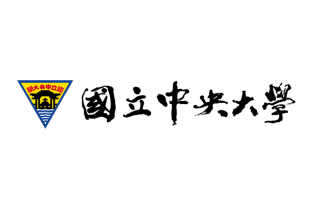Home » Blog » 如何在英文文章中段落內使用May、Might、Could、Should、Must等助動詞
如何在英文文章中段落內使用May、Might、Could、Should、Must等助動詞
作者: Wallace
發布日期: 2012 / 11 / 17, |
8254 |
人已瀏覽 |

以下是與華樂絲合作過的客戶




















提問: 「我一直對於要如何使用should、must、can、may、could和might感到很困惑,特別是將這些字用於文章中的討論段落。可否告知這些字之間的差異性,以便讓我可以輕鬆的應用於討論段落內。」
―大學副教授於學術演講後的提問
回答:
本節要探討堪稱複雜的語言範疇:「助動詞」,這在撰寫討論章節時相當重要。在科學寫作中常用的助動詞包括: may、might、could、can、should、ought to、need to、have to 以及 must。此處並不討論未用於正式科學寫作中的助動詞,像是用來表達「允許」的 can 或 may。
助動詞常用來修飾一個句子的「真實價值」。在像:
The drop in pressure was due to a crack in the pipe
一 句中,並未使用助動詞。作者告訴讀者是何種原因造成壓力的下降,並且以具體證據加以證明。然而,如果作者寫的是:
The drop in pressure may have been due to a crack in the pipe
那麼作者就是為壓力的下降提出一個可能的原因。如果寫:
The drop in pressure must have been due to a crack in the pipe
則是表明作者確定是管子破裂導致壓力之下降,但並無確切證據予以證實。確定某一現象為真,和知道某一現象為真,完全是兩碼子事。雖然使用助動詞 must 為句子賦予更多力量,但同時也表達了證據的缺乏。
助動詞在結果與討論中特別有用。在此章節中,作者撰寫和研究結果相關之理由、詮釋與義涵,因此經常需指出某些現象是 :
- 可能的理由 a possible reason
- 明顯的詮釋 an obvious interpretation
- 可能的義涵 a probable implication
以下是從一段結果與討論中摘錄的典型句子:
The kinetics can be described by these equations, suggesting that the electrons are transferred directly. This might involve a supercharge mechanism, but the data could also be described by electron transfer via a hopping mechanism.
為了開始思考這些助動詞有何功能,請利用以下簡短的練習,將 A 欄中的助動詞與 B 欄中的意義加以配對。這些助動詞中,大部分均具有多重意義。
|
A |
B |
|
|
可以/能夠 He . . . go home by himself. (He is able to go home by himself.) |
|
Should Must |
可能的/可供選擇的 He . . . go home. (It is possible that he will go home.) |
|
Can Ought to |
也許/大概 He . . . be home soon. (He will probably be home soon.) |
|
May Could |
幾乎可以確定 He . . . be at home. (It is virtually certain that he is at home.) |
|
Need to Might |
建議性的 He . . . go home. (I advise him to go home.) |
|
Have to |
必須的 He . . . go home. (It is necessary for him to go home.) |
現在,請對照參考答案:
|
Can |
可以/能夠 (He can go home by himself.) |
|
May Might Could Can |
可能的/可供選擇的 (He may/might/could/can be at home.) |
|
Should Ought to |
也許/大概 (He should/ought to be home soon.) |
|
Must Have to |
幾乎可以確定 (He must/has to be at home.) |
|
Should Ought to |
建議性的 (He should/ought to go home.) |
|
Must Need to Have to |
必須的 (He must/needs to/has to go home.) |
這些助動詞之所以不易使用,有兩個理由。第一,有些助動詞具有多種意義。因此,當使用如 should 這個助動詞時,請確定所要表達的意義是可能(likely)發生,還是應該發生(advisable)。
其次,大多數助動詞並不遵循標準文法規則。在否定或其他時態中,有些助動詞會消失,有些則會改變語意。例如 He must go home 和 He has to go home 的語意相同,但是 He must not go home 則意指「不准他回家」,和 He doesn’t have to go home 之語意明顯不同。
下表列出這些助動詞在過去式及否定句中的功能,並舉例說明。此表並未探討每一個助動詞的所有可能用法。
1. 能力/用處
|
現在式 |
Can |
This software can distinguish between different viruses. |
|
現在式 否定 |
Cannot |
Until 18 months a child cannot use symbols to represent objects. |
|
過去式 |
Could |
。It was found that the gun could shoot accurately even at 300 meters. |
|
Could have |
。If we had extended the time period we could have produced more crystals. | |
|
過去式 否定 |
Could not |
。In 1990, 80% of households could not receive digital television. |
|
Could not have |
。The subjects reported that they could not have fallen asleep without medication. |
備註:
- 當用來表示能力或用處時,助動詞 can 只能使用上述兩種時態。如果需要使用其他時態,則需改用 be capable of 或 be able to。例: It is believed that this software will eventually be capable of distinguishing between different viruses.
- Could 意指過去通常有能力/可以完成某事;而 was able to 則用來描述特定的過往事件或場合。例:The result suggests that in this case, the viruses were able to multiply freely. 若無法確定究竟該用 can 或 be able to ,那麼可使用 be able to ,這樣比較保險。
2. 可能性/可採用選項
|
現在式 |
May Might Could Can |
A rubber seal may/might/could/can be useful at this location. |
|
現在式 否定 |
May not Might not (但不能使用 Could not 或 Cannot) |
A rubber seal may not/might not be useful at this location. |
|
過去式 |
May have Might have Could have (但不能使用 Can have) |
The fall in pressure may have been/might have been/could have been caused by leakage. |
|
過去式 否定 |
Might not have (但不能使用 Could not have 或 Cannot have) |
The fall in pressure may not have been/might not have been caused by leakage. |
備註:
- 有時候,添加 well 可以用來表達對此可能性有更強的確認性。
- Might 的語氣較 may 弱。
- 有趣的是,can not 和 cannot 的意義截然不同。Can not 的語意和 may not 或 might not 一樣,都是「可能不(possibly not)」,但是除了用在 this can not only damage the sample, it may even destroy it completely 之句子結構外,鮮少運用。反之,cannot 則代表「不可能 impossible」,是完全不同的意思。Could not、cannot、could not have 和 cannot have 都屬於這一類用語。
例句如下:
We realize that this cannot be due to a change in pressure.
We realized that this could not be due to a change in pressure.
We realize that this cannot have been due to a change in pressure.
We realized that this could not have been due to a change in pressure.
作者的意思並非「可能不是」( possibly not ),而是「不可能」( impossible)。
3. 可能性/信服/預期
|
現在式 |
。Should 。Ought to |
The material should remain stable if it is kept below 30°C. |
|
現在式 否定 |
。Should not 。Ought not to |
The material should not decompose unless heated above 30°C. |
|
過去式 |
。Should have 。Ought to have |
By the time the cobalt is added, the crystals should have dissolved. |
|
過去式 否定 |
。Should not have 。Ought not to have |
This was unexpected; the material should not have decomposed at this temperature. |
備註:雖然 ought to 語意和 should 相同,但在科學寫作中不常見,因此並未舉例。
4. 幾乎確定
|
現在式 |
。MUST 。HAVE TO |
Our results indicate that contamination must be due to the presence of sea water in the pipe. |
|
現在式 否定 |
Cannot |
It is clear that contamination cannot/could not be due to the presence of sea water in the pipe. |
|
過去式 |
Must have |
Our results indicate that contamination must have been due to the presence of sea water in the pipe. |
|
過去式 否定 |
。Cannot have 。Could not 。Could not have |
It was clear that contamination could not be/cannot have been/could not have been due to the presence of sea water in the pipe. |
備註:
- Virtual certainty 之助動詞表示所描述事實不可能有其他解釋。
- Have to 在科學寫作中較不常用,所以並未舉例。
- Must not 意指「不被允許」(not allowed/permitted),並非 not possible。
5.建議/意見
|
現在式 |
。Should 。Ought to |
The apparatus should be disconnected from the mains during repairs. |
|
現在式 否定 |
。Should not 。Ought not to |
This material should not be exposed to sunlight. |
|
過去式 |
。Should have 。Ought to have |
The apparatus should have been disconnected from the mains during repairs. |
|
過去式 否定 |
。Should not have 。Ought not to have |
This material should not have been exposed to sunlight |
備註:
- 雖然 ought to 的意思和 should 相同,但是在科學寫作上較少使用,所以並未舉例。
- Should have/ought to have 通常表示某件事並未發生,而 should not have/ought not to have 通常表示某件事確實發生。
6. 需要/義務
|
現在式 |
。Must 。Need to 。Have to |
The apparatus must/needs to/has to be disconnected from the mains during repairs. |
|
現在式 否定 |
。Need not 。Do not need to 。Do not have to |
The apparatus need not/does not need to/does not have to be disconnected from the mains during repairs. |
|
過去式 |
。Needed to 。Had to |
We needed to/had to heat the valves before use. |
|
過去式 否定 |
。Did not need to 。Did not have to 。Need not have | 。We did not need to/did not have to heat the valves before use. 。We need not have heated the valves before use. |
備註:
- We did not need to/did not have to heat the valves before use 並未表明我們是否加熱了閥門,而 we need not have heated the valves before use 則顯示我們已進行了加熱處理,但此一處理並非必要。
- Must not 意指「不被允許」(not allowed),而非「不必要」(not necessary)。
額外相關閱讀推薦:
希望我們的英文寫作、英文文法教學及論文期刊投稿指導文章有幫到您!
若有英文編修需求,請試試我們的免費300字試用服務,華樂絲英文編修品質絕對會讓您滿意:
訂閱電子報
提供英文文法、中英翻譯、英文寫作技巧以及碩博士生涯規畫等,專為台灣碩博士生與研究者量身打造的學習內容。每週自動寄送至您指定的Email信箱,隨時都能取消訂閱。
超過 315,000 名中港台碩博士生與研究人員訂閱
華樂絲服務項目
文章搜尋
文章分類
演講活動
|
2020.11.27 - 國立臺北科技大學 |
|
2020.11.19 - 工業技術研究院 |
|
2020.11.17 - 國立臺灣大學 |
|
2020.6.16 - 工業技術研究院人力處 |
|
2020.2.6 - 國立交通大學產學運籌中心 |
| 邀請Dr. Steve Wallace演講 |

